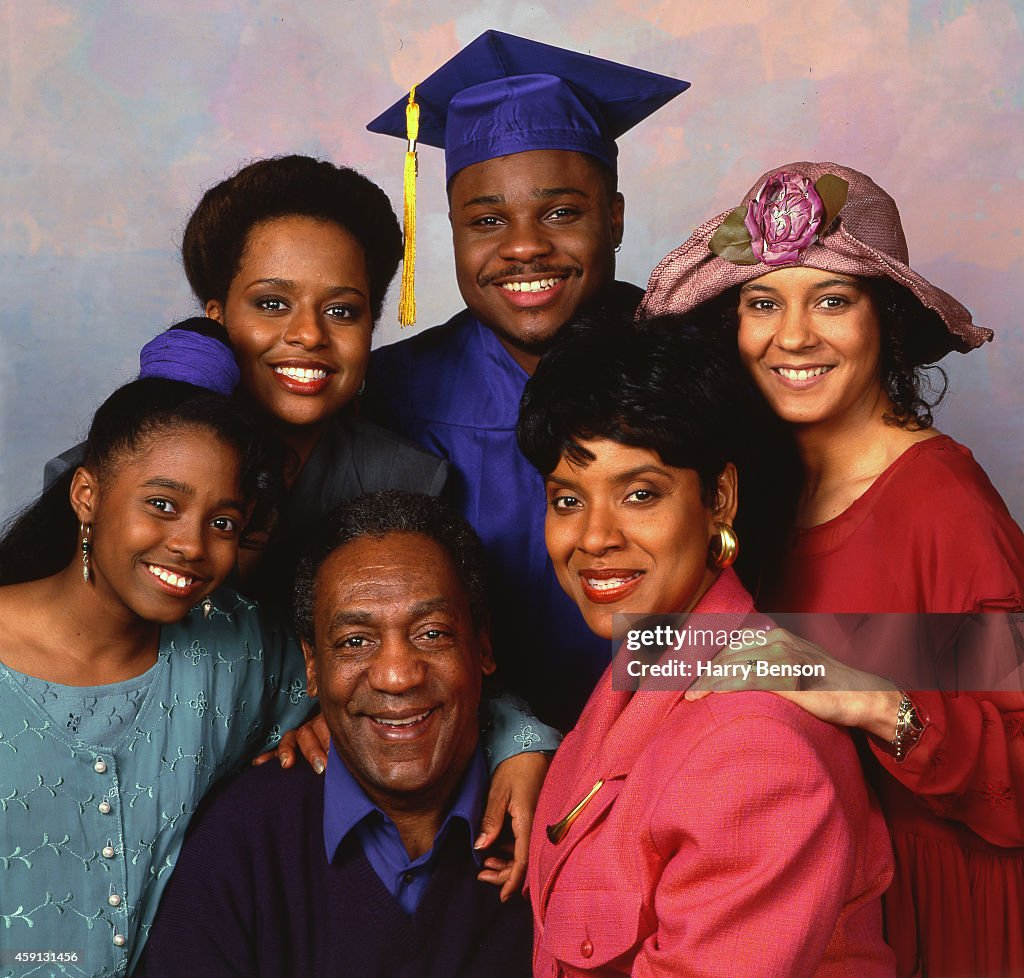
In 1984, television saw the debut of a show that would change the course of television history forever. The Cosby Show, created by Bill Cosby, wasn’t just another family sitcom—it was a cultural game-changer. It introduced audiences to the Huxtable family, an affluent, educated African-American family that defied stereotypes. At a time when black families were typically portrayed in a limited, often negative light on TV, The Cosby Show broke those boundaries, setting new standards for representation, storytelling, and family dynamics on the small screen.
Breaking Stereotypes
Before The Cosby Show, black characters on television were often relegated to roles that reinforced harmful stereotypes. The majority of African-American characters were depicted as poor, uneducated, or involved in crime. However, The Cosby Show presented an entirely new picture. The Huxtables were a successful, loving family led by Dr. Cliff Huxtable (Bill Cosby), a well-respected doctor, and his wife, Clair (Phylicia Rashad), a successful lawyer. The couple’s relationship was grounded in mutual respect, love, and humor—a refreshing change from the standard portrayals of black life at the time.
This was a groundbreaking shift. For the first time, an African-American family was portrayed as wealthy, educated, and professional, which not only redefined the possibilities for black characters on television but also opened the door for future shows that would follow suit. The Huxtables were no longer the exception—they became the new standard.
A Family Like No Other
At the heart of The Cosby Show was its portrayal of a family that was warm, caring, and most importantly, real. The humor was accessible to viewers from all walks of life, but it also addressed important cultural and social issues with a light touch that was accessible to audiences of all races. The show tackled topics such as education, race, gender roles, class, and even generational differences—yet it never felt preachy or forced. Instead, it wove these issues naturally into the everyday lives of the Huxtables.
Cliff and Clair Huxtable became role models for parents everywhere. Their marriage was portrayed as a partnership built on equality, affection, and teamwork. Cliff was the lovable, goofy father figure, but he was also smart, responsible, and an ideal role model for his children. Clair, on the other hand, was a strong, professional woman who balanced her career and family life with grace, showing that women could excel both at work and at home. Together, they made parenting look like a fun, rewarding, and challenging journey that viewers could relate to.
The Cultural Impact
The Cosby Show didn’t just change the portrayal of African-American families—it influenced the broader entertainment landscape. The show’s success proved that there was a massive audience for content that represented the diverse reality of American life. It also proved that people of all backgrounds could find joy in seeing positive, relatable stories about African-American families. The Cosby Show paved the way for later series like A Different World (which spun off from The Cosby Show), The Fresh Prince of Bel-Air, Family Matters, and The Bernie Mac Show. These shows would continue to redefine the African-American experience on television, following in the groundbreaking footsteps of the Huxtables.
Beyond just TV, The Cosby Show had a profound effect on the way African-Americans were perceived in popular culture. For many viewers, it shattered misconceptions and fostered a greater understanding of the diversity within the African-American community. The show proved that African-American families could be portrayed as loving, successful, and full of laughter, just like any other family on television.
A Show for Everyone
Although The Cosby Show had a primary focus on the Huxtable family, it resonated with audiences of all racial and cultural backgrounds. The comedy was universal, appealing to families regardless of ethnicity. Its themes of family, education, and life’s ups and downs were relatable to everyone, making it a show that appealed to both African-American and mainstream audiences alike. The show’s success was not just in its groundbreaking representation of African-American families, but in its ability to appeal to the common human experience.
Over time, The Cosby Show became one of the most-watched sitcoms in America. It achieved both critical and commercial success, receiving numerous awards and accolades. Most importantly, it earned a lasting place in the hearts of its viewers, becoming a cultural touchstone for anyone who tuned in during the 1980s and 1990s.
Lasting Legacy
Despite some controversies surrounding Bill Cosby in later years, the impact of The Cosby Show on American television remains undeniable. The Huxtables will always stand as symbols of a new era of representation on TV. Today, shows like Black-ish, The Neighborhood, and Empire continue the legacy of African-American families on TV, furthering the path that The Cosby Show blazed more than three decades ago.
The Cosby Show forever changed the way we view families on television and redefined the cultural narrative surrounding African-American life. It created a space where viewers of all backgrounds could see themselves reflected on the screen, with dignity, humor, and love. This groundbreaking series will remain a timeless classic for years to come, reminding us that the power of storytelling is more important than ever.
